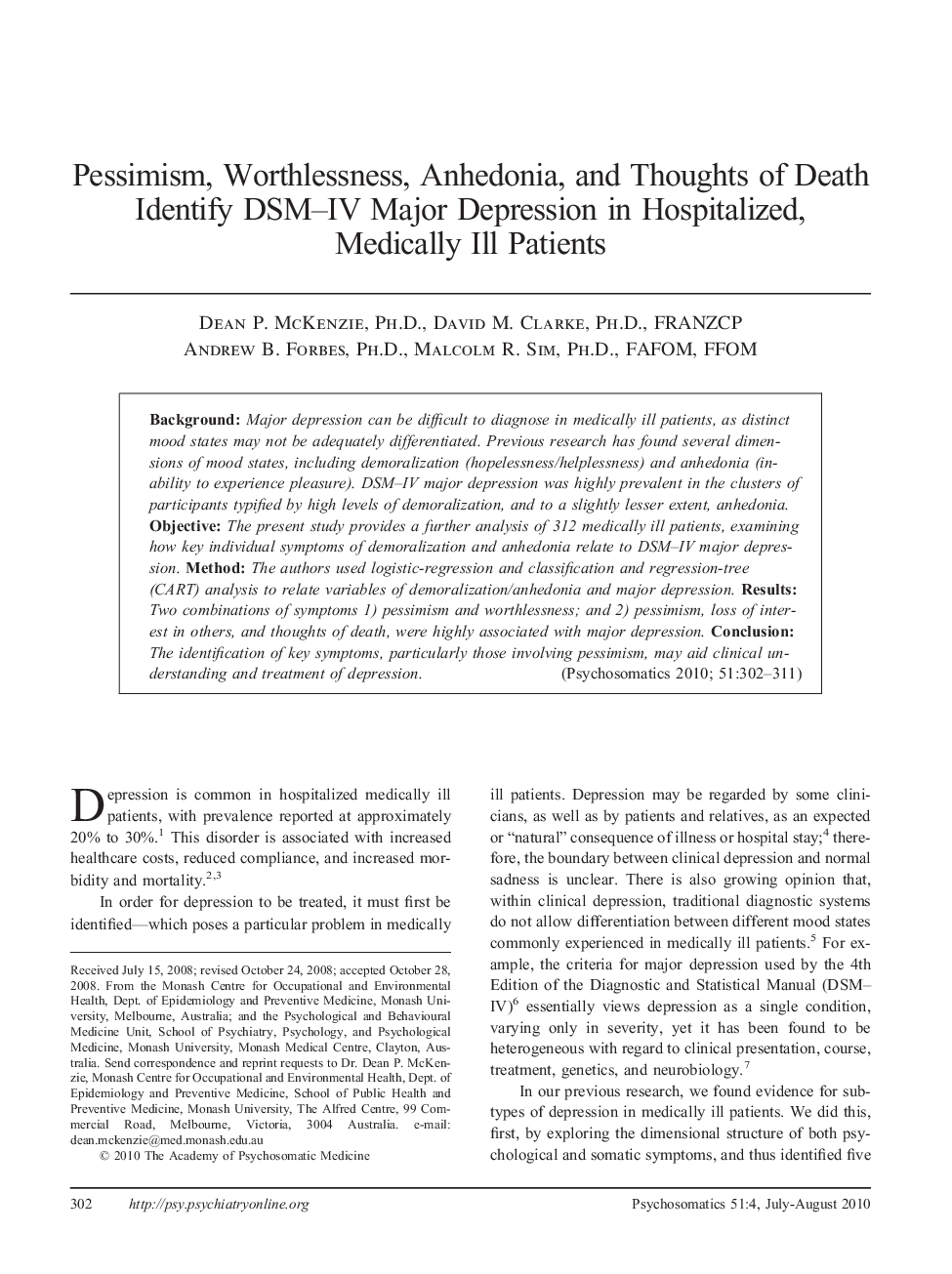ترجمه فارسی عنوان مقاله
بدبینی، بی ارزشی، فقدان لذت و تشخیص افکار مرگ DSM-IV افسردگی اساسی در بیماران بستری شده بیمارستان پزشکی
عنوان انگلیسی
Pessimism, Worthlessness, Anhedonia, and Thoughts of Death Identify DSM–IV Major Depression in Hospitalized, Medically Ill Patients
| کد مقاله | سال انتشار | تعداد صفحات مقاله انگلیسی |
|---|---|---|
| 38259 | 2010 | 10 صفحه PDF |
منبع

Publisher : Elsevier - Science Direct (الزویر - ساینس دایرکت)
Journal : Psychosomatics, Volume 51, Issue 4, July–August 2010, Pages 302–311
ترجمه کلمات کلیدی
بدبینی - بی ارزشی - فقدان لذت
کلمات کلیدی انگلیسی
Pessimism, Worthlessness, Anhedonia,

